Search Results for: Bears
Skip to resultsCan’t find what you’re looking for? Visit our FAQ page.
6,901 results for: Bears
-
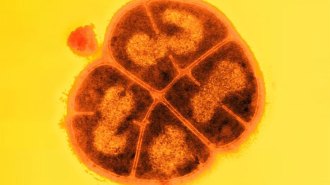 Microbes
MicrobesAncient bacteria could persist beneath Mars’ surface
Radiation-tolerant microbes might be able to survive beneath Mars’ surface for hundreds of millions of years, a new study suggests.
By Sid Perkins -
 Humans
HumansThe world population has now reached 8 billion
In a first, the global population surpassed this milestone on November 15, according to a projection from the United Nations.
-
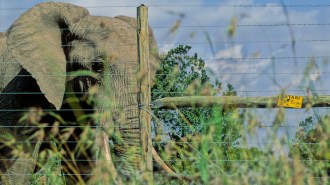 Animals
AnimalsA new book asks: What makes humans call some animals pests?
In an interview with Science News, science journalist Bethany Brookshire discusses her new book, Pests, and why humans vilify certain animals.
-
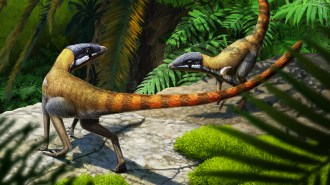 Paleontology
PaleontologyPterosaurs may have evolved from tiny, fast-running reptiles
A mysterious little ground-dwelling reptile unearthed in a Scottish sandstone over 100 years ago turns out to be part of a famous flying family.
-
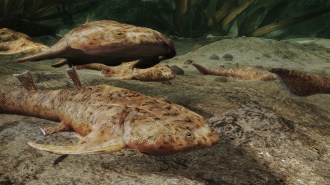 Paleontology
PaleontologyAncient fish fossils highlight the strangeness of our vertebrate ancestors
New fossils are revealing the earliest jawed vertebrates — a group that encompasses 99 percent of all living vertebrates on Earth, including humans.
-
 Earth
EarthRare earth mining may be key to our renewable energy future. But at what cost?
We take you inside Mountain Pass, the only rare earth mine in the United States.
-
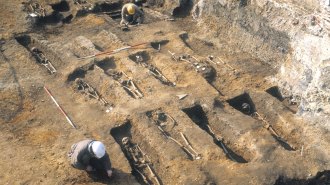 Genetics
GeneticsBlack Death immunity came at a cost to modern-day health
A genetic variant that boosts Crohn’s disease risk may have helped people survive the 14th century bubonic plague known as the Black Death.
By Wynne Parry -
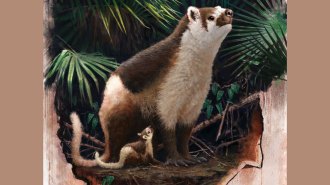 Paleontology
PaleontologyLiving fast may have helped mammals like ‘ManBearPig’ dominate
Staying in the womb for a while but being born ready to rock may have helped post-dinosaur mammals take over the planet.
-

-
 Health & Medicine
Health & MedicineHow living in a pandemic distorts our sense of time
The pandemic has distorted people’s perception of time. That could have implications for collective well-being.
By Sujata Gupta -
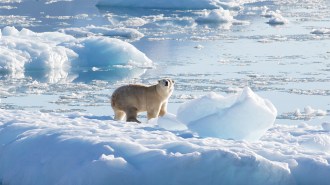 Ecosystems
EcosystemsSome polar bears in Greenland survive on surprisingly little sea ice
“Glacial mélange” could provide a last refuge for some bears as the Earth warms, but climate action is needed to preserve the species, researchers say.
By Nikk Ogasa -
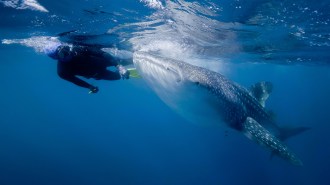 Animals
AnimalsWhale sharks may be the world’s largest omnivores
An analysis of the sharks’ skin shows that the animals eat and digest algae.
By Freda Kreier